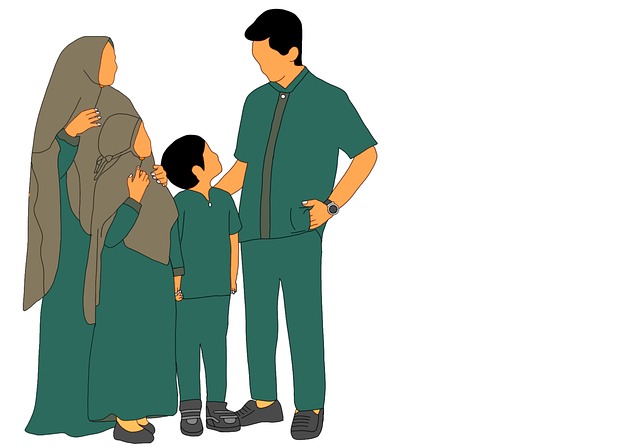Custody arrangements greatly affect children and parents' emotional well-being post-divorce or separation. Shared custody tips, including open co-parenting communication and joint decision-making, improve parenting plans. Effective co-parenting involves regular dialogue, mutual respect, and a child-focused approach to resolve conflicts amicably. Key strategies include detailed parenting plans, consistent routines, open connections between parents, agreed-upon joint custody guidelines, mediation, and counseling for contentious situations, ensuring stability and positive adaptation for children.
Navigating emotional challenges in custody and co-parenting situations is a crucial aspect of post-divorce life. This article delves into the intricate interplay between custody arrangements and their profound emotional impact on families. We explore effective co-parenting strategies for seamless communication and constructive conflict resolution, providing essential insights into shared custody tips and joint custody guidelines. Additionally, we discuss the role of custody mediation in overcoming difficulties and fostering collaboration, ensuring a smoother transition for both parents and children. Key topics include parenting plans after divorce, child custody rights, and valuable custody mediation tips.
Understanding Custody Arrangements and Their Emotional Impact
Custody arrangements play a pivotal role in shaping the emotional well-being of children and parents alike, especially during and after divorce or separation. These plans, which detail physical and legal custody rights and responsibilities, can vary widely depending on the specific circumstances of each family. Shared custody tips, such as implementing joint custody guidelines and fostering effective co-parenting communication, have been shown to significantly enhance post-divorce parenting plans.
When navigating custody mediation tips, it’s crucial to prioritize conflict resolution in co-parenting. This involves open dialogue, mutual respect, and a commitment to the child’s best interests. By adopting these co-parenting strategies, families can navigate custody arrangements more smoothly, reducing emotional challenges for both parents and children involved.
Co-Parenting Strategies for Effective Communication and Conflict Resolution
In the midst of emotional challenges that often arise during custody and co-parenting situations, establishing clear and effective communication becomes a powerful tool. Co-parenting strategies should focus on open dialogue to discuss important decisions regarding the child’s upbringing. Regular meetings or video calls can help maintain consistency in sharing parenting plans after divorce, ensuring both parents remain actively involved and informed about their child’s life. Shared custody tips encourage joint decision-making, promoting stability for the child, and minimizing conflict.
Conflict resolution in co-parenting is essential to navigate differences respectfully. Joint custody guidelines suggest utilizing mediation or counseling services when disagreements arise. These methods provide a safe space to air concerns and negotiate solutions without escalating tensions. Custody mediation tips emphasize the importance of remaining focused on the child’s best interests, fostering an environment where emotional challenges can be addressed constructively, ultimately leading to more harmonious co-parenting relationships.
Shared Custody Tips and Joint Custody Guidelines for a Smooth Transition
In situations where a divorce involves shared or joint custody arrangements, establishing effective co-parenting strategies is paramount for a smooth transition for both parents and children. Shared custody tips include creating clear, detailed parenting plans after divorce that outline responsibilities, schedules, and decision-making processes. Open lines of effective co-parenting communication are crucial to ensuring consistency in routines and fostering stability for the child. Regular meetings or calls can help maintain a sense of connection between both parents, reducing potential conflict.
Joint custody guidelines should be mutually agreed upon, focusing on the best interests of the child. Conflict resolution in co-parenting often involves seeking mediation or counselling to navigate disagreements amicably. This process helps parents learn custody mediation tips for resolving issues without escalating tension. Remember, successful co-parenting requires patience, flexibility, and a commitment to the child’s well-being, allowing them to adapt positively to the new living arrangements.
Custody Mediation: Navigating Difficulties and Finding Common Ground
Custody Mediation plays a pivotal role in helping separated parents navigate complex emotional challenges and find common ground regarding their children’s future. This process facilitates open dialogue, enabling parents to discuss and establish effective co-parenting strategies. By participating actively and adopting shared custody tips, they can create a more stable environment for the kids, addressing the emotional aspects often associated with divorce or separation.
Mediation serves as a safe space to negotiate parenting plans after divorce, ensuring that both parents’ rights and concerns are heard. It encourages conflict resolution in co-parenting by focusing on what’s best for the child. Through effective co-parenting communication, guided by joint custody guidelines, parents can cooperate and avoid contentious disputes, fostering a more harmonious transition for their children. These mediation tips aim to streamline the process, promoting healthy co-parenting relationships even amidst challenging circumstances.
Navigating emotional challenges in custody and co-parenting situations requires a multifaceted approach. By understanding the impact of custody arrangements, implementing effective co-parenting strategies, and leveraging shared custody tips, parents can create a supportive environment for their children. Joint custody guidelines and conflict resolution techniques are essential tools to ensure smooth transitions and maintain open communication. Custody mediation serves as a valuable process for finding common ground and resolving difficulties, ultimately fostering healthier relationships for both parents and children post-divorce.
